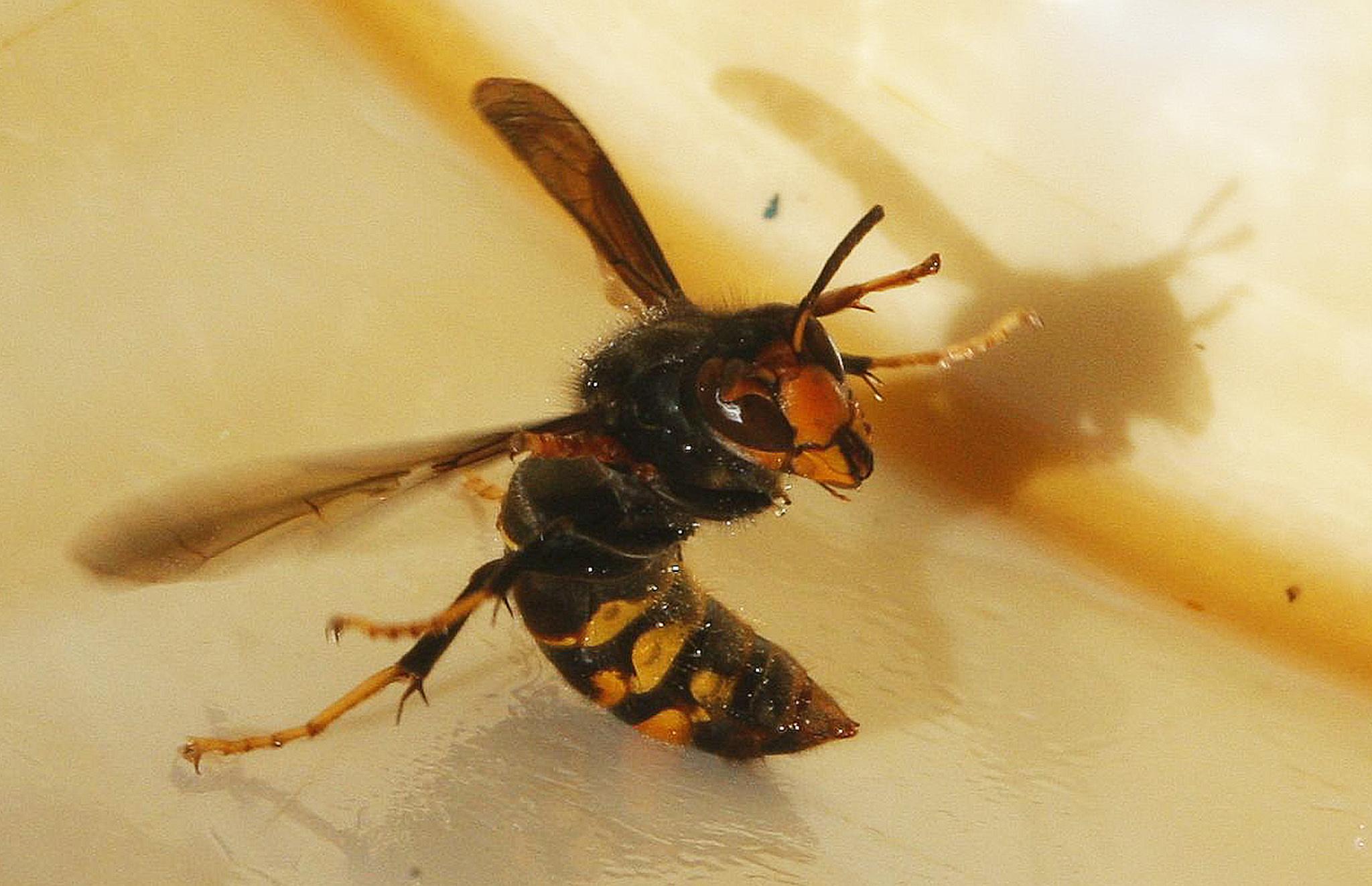Asian killer hornet discovered in Devon posing threat to dwindling native bee populations
Insect incursion discovered near beehives

Your support helps us to tell the story
From reproductive rights to climate change to Big Tech, The Independent is on the ground when the story is developing. Whether it's investigating the financials of Elon Musk's pro-Trump PAC or producing our latest documentary, 'The A Word', which shines a light on the American women fighting for reproductive rights, we know how important it is to parse out the facts from the messaging.
At such a critical moment in US history, we need reporters on the ground. Your donation allows us to keep sending journalists to speak to both sides of the story.
The Independent is trusted by Americans across the entire political spectrum. And unlike many other quality news outlets, we choose not to lock Americans out of our reporting and analysis with paywalls. We believe quality journalism should be available to everyone, paid for by those who can afford it.
Your support makes all the difference.An Asian hornet has been seen in near Woolacombe in Devon, the National Bee Unit has said.
While the foreign species does not pose a risk to human health, its presence does threaten native honey bees.
The sighting, near an apiary, is the first since last year, when a nest was discovered in Gloucestershire.
Bee keepers tracked down and destroyed that nest, containing the incursion.
Honey bees are in decline and play an important role in maintaining British crops.
Nicola Spence, Defra Deputy Director for Plant and Bee Health, said in a statement: "We recognise the damage (Asian hornets) can cause to honey bee colonies.
"That’s why we are taking swift and robust action to locate and destroy any nests in the Devon area following this confirmed sighting.
"Following the successful containment of the Asian hornet incursion in Gloucestershire last year, we have a well-established protocol in place to eradicate them and control any potential spread.
"We remain vigilant across the country, working closely with the National Bee Unit and their nationwide network of bee inspectors."
Authorities are setting up a surveillance zone stretching one to two kilometres around the initial sighting.
They are set to open a local control centre to coordinate the response and will deploy bee inspectors equipped with infrared cameras and traps to find any nests.
They will then use pesticides to kill the hornets and destroy the nests.
The hornets have become widespread in central and southern France and British authorities have long worries they could arrive in the UK, possibly hiding in imported goods.
Join our commenting forum
Join thought-provoking conversations, follow other Independent readers and see their replies
Comments